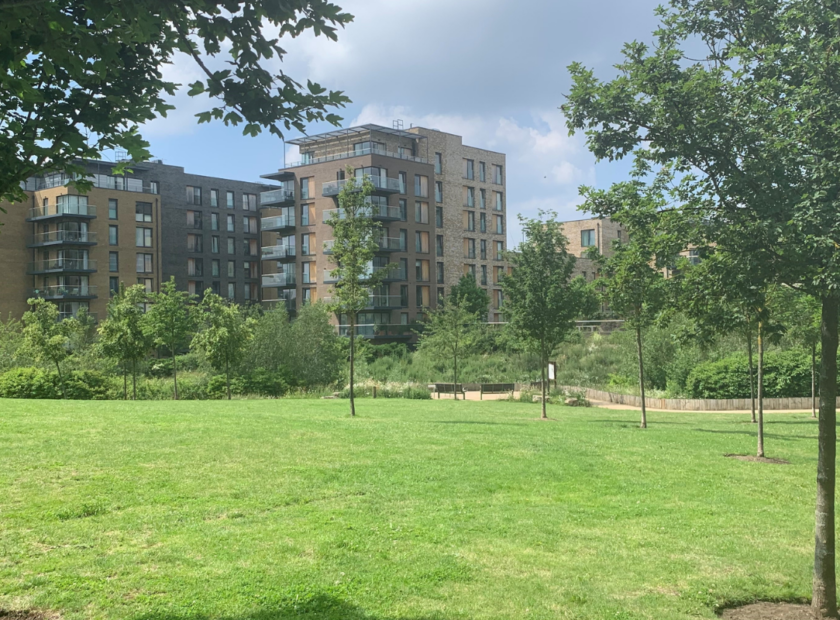Surrealism, like satire, only works if there is an orthodox reality to react against. The problem we face in plotting the course of planning reform is that we have multiple realities to choose from. There is the reality of the planning White Paper which now seems like a distant memory; the reality of the Gove era of levelling up and the NPPF rewrite; and finally the Truss/Mogg reality of slash-and-burn deregulation. After the fall of Truss there’s a sense that Sunak might reset to the Gove reality of the summer of this year. The danger is that while this reality is not the ‘war on nature’ and the environment that Truss unleashed it is still an agenda with a series of fatal flaws for the future of our communities. There is a real risk that we have all become so numb to the recent assault on nature, democracy and social justice that we ignore a significant legislative reality. The Levelling Up and Regeneration Bill is heading for third reading having faced down any attempt to improve its content during committee. The result is legislation with enormous risks for issues such as affordable housing delivery and at the same time completely silent on measures which can help people through the cost of living and climate crises.
There is a great deal wrong with the Bill in detail, but there are three issues that stand out. The first is that in relation to planning reform the Bill still assumes that supply side deregulation will equate to economic growth. This is a profound misunderstanding of the practical value and democratic values of planning and has driven perverse reform measures such as the powerful attempt to remove local community scrutiny from decisions. Investment zones, minus some of the unaffordable tax breaks, may survive the Truss era but these archetypes of supply side deregulation will have a marginal impact on growth for the reasons set out in this recent blog. The deregulation of planning for the last 12 years, in a vague attempt to drive growth, is the supreme example of a dog barking up the wrong tree. We have seen extensive deregulation which has left the planning system on its knees but that has done nothing to drive the efficiency, standards or productivity of our house building sector. The problem we face with the new Sunak administration is that while the tone may change the failed orthodoxy remains and that means the great opportunity to deliver positive solutions through planning will not be seized.
The second fatal flaw in the Bill is its strong centralising tendency. The details of how people’s rights are being removed from local plans have been set out before by the TCPA, but the key issue is that the government has made absolutely no concessions in committee to the widespread concerns about the end of the plan-led system. The legal power of the new national development management policy to trump the legal status of the local plan is clear[1] in the Bill and that means that the Secretary of State can, at any time, and with minimum public consultation, change the rules of the game to outflank locally established policy. We will now, as a matter of law, have a national policy led system with a secondary legal status for the local plan. Since that national policy is subject to no meaningful safeguards in relation to public scrutiny, we all just have to trust national government not to use it to, for example, impose fracking or change the rules for Green Belt. The determination to side-line the voice of local people became even more obvious with the Government’s amendments to the Bill which give the Secretary of State discretion to limit the period of public examinations into major infrastructure projects to any time-scale they think fit[2]. In normal times these actions would have provoked outrage but in the current political chaos there is a risk that they will go unchallenged. And all of this has to be read in the context of the planned abolition, next year, of swathes of environmental and social safeguards which will have a profound and wholly negative impact on the well-being of our communities.
The final flaw in the Levelling Up Bill is perhaps the saddest for our collective future. During committee stage there were multiple amendments which sought to put people’s health and well-being, climate change, nature and affordable homes at the heart of decision-making. Outside the committees there were a host of suggestions to Government on how communities could take practical action for themselves on issues like local food. Despite all these positive and practical suggestions there is not a single measure in the Bill which actually helps communities deal with the multiple crises which are now reshaping our society. Above all else, the Levelling Up Bill is an extraordinary missed opportunity whereby a laudable idea is reduced to nothing more than a set of disjointed procedural changes.
As the Bill heads for the report stage, and then on into the Lords, one can only marvel at this lost opportunity. But one thing is clear: when the political dust settles we will be left with a highly centralised planning system which lacks public trust and is incapable of functioning in the public interest. Opposition parties plainly have an opportunity to set out a positive alternative which can harness the democratic power of planning to provide practical solutions to challenges like the climate crisis. At the same time, and given that there is unlikely to be an election anytime soon, perhaps the key question for Conservatives is how they might return to the pragmatic and democratic values that led to the creation of the plan-led system under a previous Conservative government.
[1] See Clause 83
[2] See Clause 111.




